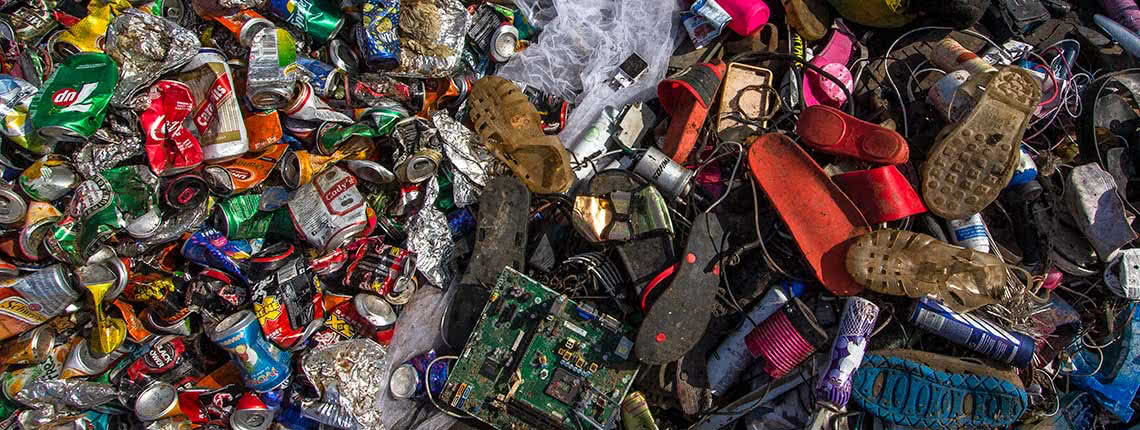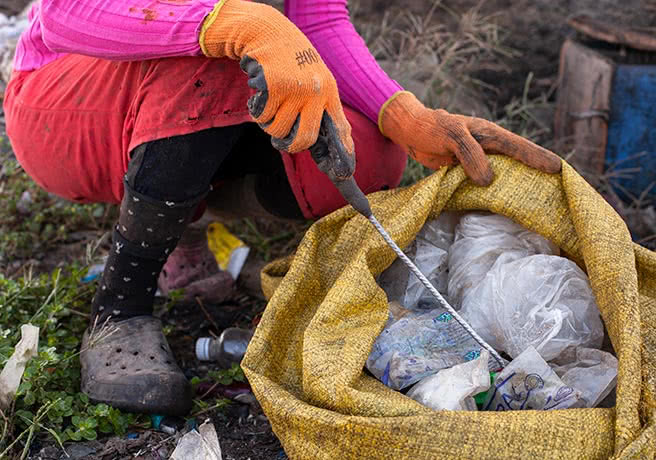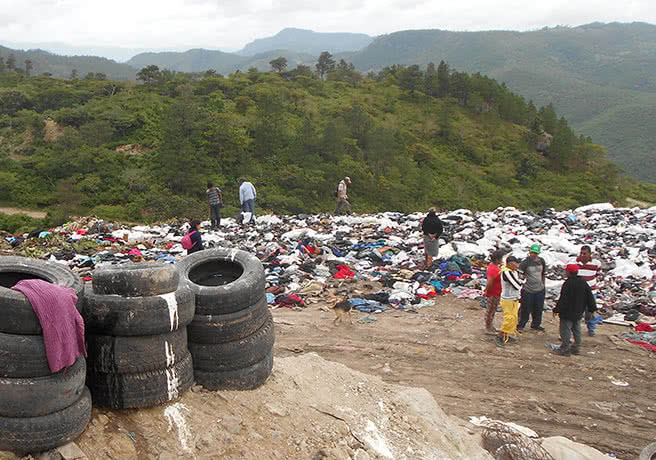During the pandemic, when waste pickers face harassment, eviction, stigmatization and a decline in earnings, building connections has proven an important mental aid and critical survival strategy for many. Today, on International Waste Pickers’ Day*, we celebrate those connections.
The situation remains difficult for waste pickers. By mid-2021, four in every ten were still earning less than 75% of their pre-COVID earnings, according to WIEGO’s COVID-19 Crisis and the Informal Economy Study. The study also found that governments may have represented a greater threat to waste pickers’ livelihood recovery, as one in eight waste pickers reported harassment by law enforcement officials. While governments were slow to introduce protective measures for waste pickers, workers' organizations were quick to respond to the crises by introducing swift changes to their working environment.
What follows here are examples of how waste pickers, despite the challenges posed by the pandemic, have come together in the past year to voice their demands to their government, support each other – both mentally and with relief – and to discuss their futures.
Organized Waste Pickers are Stronger Together in Dakar, Senegal
As part of the Senegalese government’s zero waste programme, the Project for the Promotion of Integrated Management and Economy of Solid Waste (PROMOGED) aims to improve the management of solid waste in the country and, as part of that, to restructure and eventually close the Mbeubeuss dump in Dakar. PROMOGED is funded by the World Bank, among others.
Promises by the President of Senegal to include the more than 2,000 waste pickers in a new waste management model have not convinced workers. Through their organization called Bokk Diom, waste pickers have demonstrated – and continue to do so – their capacity for resilience and adaptation by providing responses to be considered in the proposed model of waste recovery.
Bokk Diom has now created a cooperative, supported by the International Labour Organization (ILO) and WIEGO, to improve their operational practices and technical skills and to benefit from social security schemes.
In addition, through the recent collaboration with one of Senegal's largest trade union federations, the National Confederation of Senegalese Workers (CNTS), the organization is in the process of transforming itself into the first national union of waste pickers to obtain recognition of their occupation and work-related rights.
Read more: WIEGO blog The Urgent Need to Question Senegal’s Commitment to Ensuring Waste Pickers’ Livelihoods. The New York Times ‘Everyone’s Looking for Plastic.’ As Waste Rises, So Does Recycling.
Creating Lasting Connections in Brazil
WIEGO’s CataSaúde Viraliza project – an online capacity building course – was created in Brazil in 2020 to raise awareness about COVID-19 protocols, decent work, coping strategies and organizing. Another important goal was to create lasting connections between organized and autonomous workers, as well as among waste pickers in the Latin America region.
One of the great achievements of the course was the establishment of relationships of trust among organized and autonomous workers and partners, which may be helpful in future collective action.
One non-organized waste picker said: “I feel represented by you and this journey of learning has been gratifying, of exchanging ideas, not only about what we endure. These are the things that can help a waste picker feel valued, to make the work more decent.”
Read more: Connecting Waste Pickers During the Pandemic
Reclaimers Strike a Blow Against City Authorities in Johannesburg, South Africa
Early in 2021, the City of Johannesburg, South Africa, announced its intention to charge households in middle and high-income suburbs a fee of ZAR50 a month (USD3.50) as part of a plan to privatize the collection of recyclables. The plan threatened the livelihoods of street reclaimers – robbing them of access to recyclables in favour of contracted private companies. The tax also affected residents negatively, because they would be charged for the service of these private companies, over and above what they already paid to the City.
The African Reclaimers Organisation (ARO) in Johannesburg launched a petition – collecting nearly 3,000 signatures – and engaged residents in the suburbs against the tax. They also spoke to the media and posted objections on social media. A week after ARO submitted the petition in early May, the City and Pikitup (the City’s waste collection subsidiary) issued a statement announcing the suspension of its tax plan – a big success for ARO during a challenging time.
Read more: Stop Johannesburg's R50 recycling fee that threatens reclaimers' livelihood
Union of Waste Pickers in Uruguay Holds National Assembly
The Union of Clasificadores de Residuos Urbanos Sólidos – Wastepickers Trade Union of Uruguay (UCRUS) – is one of the few trade unions of waste pickers in the world. During the pandemic, for the first time, it was included in the national trade union confederation – PIT CNT – as a formal entity. When UCRUS held its sixth national assembly in October, more women waste pickers attended than ever before.
Among other topics, the national assembly discussed how extended producer responsibility (EPR) schemes, which are emerging all over the world to hold producers responsible for their products once they become waste, can determine new forms of organizing and influence negotiations with industry and municipalities. This emphasizes the importance of strong unity among different worker groups.
Manifesto Against Dump Closures from Latin American and Caribbean Waste Pickers
At the start of 2021, waste picker leaders from national organizations and movements belonging to the Latin American and Caribbean Network of Waste Pickers – RedLacre – met virtually every two weeks to discuss structural concerns for waste pickers and their organizations in the region. One of the biggest issues was the closure of dumpsites by authorities and the consequent expulsion of waste pickers, particularly in the Central American region. Together, the waste pickers created a manifesto containing eight non-negotiable principles regarding the protection of the livelihoods of waste pickers in situations of dumpsite closure.
The manifesto is an important example to waste pickers in other regions of the world who face the same threat.
Read more: Spanish only.
The Growth of a Global Alliance of Waste Pickers
WIEGO is supporting waste pickers to work towards a global network to amplify their voice. A draft constitution is currently under discussion by waste pickers from all over the world. This is a significant step forward in a process that started in 2008.
The Global Alliance of Waste Pickers will be participating in the Fifth session of the United Nations Environment Assembly (UNEA-5).
SENSITIVE CONTENT WARNING
*International Waste Pickers’ Day is celebrated on March 1 in memory of the massacre in Colombia in which 11 workers were brutally killed at the Universidad Libre de Barranquilla (University of Barranquilla) after being lured into the building by university staff with the promise of recyclable materials. This tragedy shows how society has historically devalued and dehumanized waste pickers, and highlights the threats they face. Waste pickers continue to fight for recognition of their work around the world.





